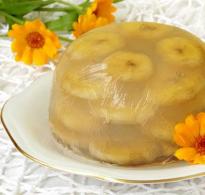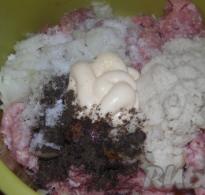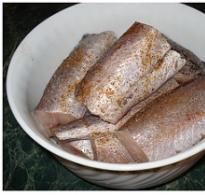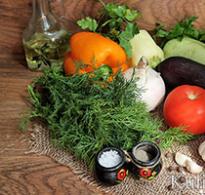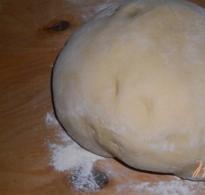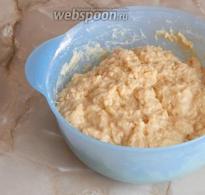The proportions of citric acid during canning. Vinegar, citric acid - how to dilute how to apply
Canning without vinegar. How to replace vinegar? AdviceAmong homemade vegetables canned marinades are especially popular. The use of a large amount of table vinegar in such home billets makes them resistant in storage, but far from useful. Vinegar - the product aggressive and love for pickled vegetables can lead to diseases of the gastrointestinal tract.
It is possible without vinegar! The mistress know the insidious property of the table vinegar to irritate the mucous membrane of the stomach and cause heartburn. Therefore, with home canning, many replace vinegar with less harmful preservatives.
There are a lot of recipes for home billets without a table vinegar, which in their taste is not inferior to all the favorite marinades. So what can be replaced by vinegar?
Vodka or citric acid?
Preservation without vinegar involves replacing it with the same powerful conservative microflora growth. In addition, the vinegar gives the vegetables that kislicka, which is so loved in marinades.
The most popular vinegar substitute in domestic preservation is citric acid. The marinades with it are not so sharp for taste, but stored blanks with citric acid even better than acetic. Usually, the 3-liter jar is put a teaspoon of powder. It is believed that 1 g of citric acid ≈ 10 g of vinegar 3%.
You can see vinegar with a red currant juice. In banks with prepared cucumbers pour red currants so that it filled the emptiness between cucumbers. Pullen boiling water with salt (on 1 l of water - 60 grams of salt) and sterilize. The cucumbers are perfectly preserved and have a pleasant "pickled" taste.
Another pretty original method of canning without vinegar. In cucumbers, already filled with hot water with salt and spices, add ... vodka! On the 3-liter jar, 2 tablespoons are enough. Alcohol is not felt in the finished product, and there are such blanks all winter at room temperature without problems.
An ordinary table vinegar can be replaced with apple or wine. These vinegar are natural products obtained by microbiological method from apple and grape raw materials and preserved the beneficial properties of fresh fruits. Their use in preservation will only benefit. The proportions using the same as for the cutlery.
Table vinegar is not the only sour preservative for cooking homemade marinade. You can preserve without vinegar and taste your favorite domestic blanks.
Sources of images: WebGramota.ru, site.
How to replace vinegar in dishes?
Irina Kosheleva
Vinegar gives many dishes a highlight. For example, salad with cabbage and carrots by itself is happy. And if adding vinegar, it turns out very tasty. But how to replace vinegar if it was suddenly not at hand?
To prepare light salads, vinegar can be replaced with lemon juice. It is more useful, and less chances to reoxit. If the lemon is not at hand, you can add a pinch of citric acid. But then you need to thoroughly mix the ingredients so that it does not work out that in one place you will have all the acid.
Conservation
Many are wondering how to replace vinegar at preservation. Here will also help citric acid. A teaspoon is usually needed on a three-liter bank. If you have other volumes, then proceed from the proportion of 5: 2. That is, 100 gossoux can well be replaced with 40 g. Lemonic acid.
In order to prepare rice for sushi, it is necessary to add a special vinegar to it. Thanks to him, he becomes softer, it will not stick to his hands during cooking and gives sushi sharpness. But what to replace rice vinegar and do not spoil the dish?
You can replace vinegar for sushi, prepare a mixture from ordinary vinegar, salt and sugar. For this, in a third of the glass of ordinary table vinegar, 9% add 2 tablespoons of sugar and a bowl of a teaspoon of salt. The whole mixture must be thoroughly stirred to completely dissolve the salt and sugar.
In principle, rice vinegar can be replaced by conventional, but more gentle varieties. For example, apple or wine vinegar. The rice vinegar differs from the usual only with its softness and not so rich concentration. Therefore, by using other varieties, it is worth a slightly reduced dose.
During the preparation of rolls or sushi, take the capacity with water and lemon juice and constantly wet your hands in it. Thanks to this, rice will not stick to the hands, and the nori will be fixed better.
Balsamic vinegar
Despite the fact that the balsamic vinegar is used in many recipes, the original product is very expensive. Cooking vinegar takes about 10, and even more years. It takes 85% vinegar, which significantly affects the price. But learning how to replace the balsamic vinegar, you will be able to save and get almost the same quality.
There are younger balsamic vinegar, which do not have such a rich taste and color. They are an order of magnitude cheaper, so it is quite suitable as a replacement.
You can also cook it yourself, from ordinary wine vinegar. To do this, add fragrant herbs, chamomile, lavender and mint to it, and let it brew about a week.
Enjoy your appetite and new culinary feats!
Lemon acid is an indispensable substance that can help in any situation. It is used in cosmetology, in the preparation of dishes and even in hair coloring. It is useful and has sour taste. But in order to use it correctly, you need to know how to dissolve citric acid. The proportions must be strictly observed. Because it is still an acid.
How to breed citric acid?
How to breed citric acid to the state of vinegar?
It would seem that these two substances are common? It turns out that there is something. From citric acid it is quite possible to replace the vinegar of any concentration. You just need to know what proportions to make it possible. For this purpose, an exceptionally dry concentrate is used, which you need to breed with water of a certain temperature. It is important to know exactly what proportions are breeding citric acid.
· In order to replace acetic essence (70%), it will take mix the acid in a dry form with water in a 1/2 ratio.
· To replace a 9% vinegar, you will need to take 1 teaspoon of powder on 14 tablespoons of water.
· In order to achieve vinegar concentration of 6%, 1 teaspoon of acid is needed to pour 22 cutlets of water.
As a rule, smaller concentration solutions are almost not used. But if necessary, you can get such: 5, 4 and 3%. To do this, you will need one teaspoon of acid powder Add 26, 34 and 36 tablespoons of water, respectively. This will be enough.
How to breed citric acid to lemon juice?
Of course, the lemon will not be completely replaced by lemon acid. They only have a similar name, and the rest is not. If you want to breed a powder for drinking, it is better not worth it. It turns out simply excessively acidic water. But for dishes or other needs it will be quite good.
- To obtain the necessary concentration to add to sugar during shogaring, it is necessary to simply make a solution of powder and water, which will correspond to the acidic taste with conventional lemon juice.
- But it is recommended to start with a small one: on the tip of the knife to put the acid into the glass and add to the water to half.
- If not enough, just add more powder.
Specifically, for Shugaring, it is not necessary to even breed the acid in a certain proportion. Because it's not how it is concentrated in a certain amount of water. And in how much it is in principle there is in solution. It is enough just to add powder at the rate of: an incomplete teaspoon per kilogram of sugar. You can a little more or less, because in this case the accuracy is not so important - if only sugar did not frost.
The preservation process is not without the use of acetic acid. It gives a spicy taste that so like most of us, and also prevents the growth of pathogenic bacteria that can spoil the whole blank. Today, the hostesses no longer represent how to do without this simple, but such an important component. How to be those who can not use vinegar for health? Do you need to completely abandon home billets? Not! Lemon acid can be used instead of vinegar. Proportions Consider in our today's article.
What is vinegar?
We are so accustomed to them to use what we almost never think about this issue. Acetic essence is a solution that consists of 80% concentrated acid and 20% water. This is a colorless liquid with caustic odor and specific properties. There are two ways to get this substance. The first is a distillation of vinegar, which is formed by natural wine drying. A pure acid is obtained thanks to a special chemical process.
Clean product
If you take 100% acid, then it represents a very curious product. When cooling up to 17 degrees, it becomes not just ice, but crystallizes. This amazing phenomenon will not work to watch at home, because in this form it is not sold in the store. In the home cooking, we do not encounter such substance. Typically, a 70% acid solution is required. But most often the hostess are dealing with aqueous solution, which is called the table vinegar. Its concentration from 3 to 13%, and this is quite enough to prepare most dishes. It is allowed to use citric acid instead of vinegar. Proportions Consider a little lower. In the meantime, let's decide which manipulations need to be done with the essence, so that the product of the desired concentration is obtained. 
If the source product is essence
Standardly in the store it has a concentration of 70%. Let's focus on this indicator. Before dealing with the proportions of citric acid instead of vinegar, it is necessary to understand what is considered as such.
- If you need 3% solution, then take 1 teaspoon of the essence, spread it with 23 teaspoons of water. This procedure can be done in advance. To do this, take an empty bottle, drain the prepared solution into it. Now he will be calmly stored in the closet.
- 4% solution is made by mixing one spoon of essence and 17 spoons of water.
- 5% - 1/13.
- 6% - 1/11.
- 9% - 1/7.
Each of these solutions can be transformed into a weaker, by adding water. 
Lemon acid
Many prefer to use it in the kitchen as an acidifier. What proportions are citric acid instead of vinegar applied without prejudice to the finished dish? Professional cooks are recommended for a liter bank to put 2 tablespoons of citrus juice or 0.5 teaside. Powder. Please note that here it is about juice from bottles. If you want to use a fresh citrus, then you need to change the proportions slightly. Lemonic acid instead of vinegar in this case can be used as follows. Instead of one spoon, 6% of vinegar will need to take about 50 g of juice pressed from citrus.
For conservation and salads
You can safely use citric acid instead of vinegar. Preservation proportions are taken on the basis of the features of the recipe and the products used. For example, at 0.5 liters of tomato juice you need only 1 g of citric acid. It can be diluted directly in the teaspoon and pour at the right moment into juice. It is best to find an adapted recipe, but permitted and experiment independently. To do this, we present the following proportions.
How to breed dry powder
What if an essence is indicated in the recipe? You can take advantage of the next memo, on the basis of it, do not be too complex calculations. The ratio of essence and table vinegar with citric acid is considered. Drag dry crystals need to be ordinary water. In order to obtain a substitute for 70% of the essence, a tablespoon of acid is required in two tablespoons of water. This solution should be taken in accordance with the recipe, how much is the essence. For example, a teaspoon.
- if add one citric acid to 14 parts of water, then get a solution equal to 9% table vinegar;
- for analogue, 6% will be required to take 1/22;
- 5% vinegar opens if mixed 1 part of citric acid and 26 parts of water;
- 4% - we divorce 1 to 34;
- 3% - 1 to 46.
Now you know how much lemonic acid instead of vinegar, it will be necessary to prepare the desired solution. What is noteworthy, no special conditions needed. Only a clean bottle, water and lemon powder, which is in any store. In terms of cost, this solution will be even cheaper than vinegar. 
Weigh without weights
It is difficult to even imagine, in many sectors of the food industry, lemon acid is used instead of vinegar. The proportions on a liter approximately ½ teaspoon is a universal formula that can be used in most recipes. By the way, if you take a teaspoon without a slide, it will be 5 grams of citric acid. The product is widely used, without it does not cost cooking sauces. This is a mandatory component of cold drinks. In the confectionery industry, too, nowhere without it. Limonon is often added as a preservative to increase the shelf life of products. In particular, it is added to some canned food. In cooking, find an equally simple and safe acidifier is simply impossible. In addition, it does not have such a sharp taste as vinegar. Sometimes clean lemon juice can be used. However, this is an option that is ideal for salads, and not for canning. Lemonic acid is not only safer than vinegar, but also useful for the body in moderate quantities.
Instead of imprisonment
Not all winter blanks can be made using citric acid. Cucumbers and eggplants do not like such a replacement, they can greatly change their taste. Therefore, it is most often used for sweet compotes, preparation of desserts. It is not bad for tomato juice with the addition of "Lemon". Try, experiment, but in small quantities. You may find exactly the unique recipe that will be beloved in your cookbook.
2017-07-07Among homemade vegetables canned marinades are especially popular. The use of a large amount of table vinegar in such home billets makes them resistant in storage, but far from useful. Vinegar - the product aggressive and love for pickled vegetables can lead to diseases of the gastrointestinal tract.
It is possible without vinegar!
The hostess know the insidious property of the table vinegar to irritate the mucous membrane of the stomach and cause heartburn. Therefore, with home canning, many replace vinegar with less harmful preservatives.
There are a lot of recipes for home billets without a table vinegar, which in their taste is not inferior to all the favorite marinades. So what can be replaced by vinegar?
Vodka or citric acid?
Preservation without vinegar involves replacing it with the same powerful conservative microflora growth. In addition, the vinegar gives the vegetables that kislicka, which is so loved in marinades.

The most popular vinegar substitute in home canning - lemon acid. The marinades with it are not so sharp for taste, but stored blanks with citric acid even better than acetic. Usually, the 3-liter jar is put a teaspoon of powder. It is believed that 1 g of citric acid ≈ 10 g of vinegar 3%.

You can see vinegar sok red currant. In banks with prepared cucumbers pour red currants so that it filled the emptiness between cucumbers. Pullen boiling water with salt (on 1 l of water - 60 grams of salt) and sterilize. The cucumbers are perfectly preserved and have a pleasant "pickled" taste.
Another pretty original method of canning without vinegar. In cucumbers, already filled with hot water with salt and spices, add ... vodka! On the 3-liter jar, 2 tablespoons are enough. Alcohol is not felt in the finished product, and there are such blanks all winter at room temperature without problems.

An ordinary table vinegar can be replaced with apple or wine. These vinegar are natural products obtained by microbiological method from apple and grape raw materials and preserved the beneficial properties of fresh fruits. Their use in preservation will only benefit. The proportions using the same as for the cutlery.
Table vinegar is not the only sour preservative for cooking homemade marinade. You can preserve without vinegar and taste your favorite domestic blanks.
For example, use much more useful acidic juices or at least lemonic acid instead of vinegar. So, before you a glass of pure water and food citric acid. Lemon acid goes to acetic. After all, citric acid will not leave and does not fail. But this concerns only the preservative properties of citric acid and essence.
Let's talk about those acids that we most often use in food, for canning or for acidifying products. Many have problems how to breed vinegar in the desired proportion, because in acetic essence 70% acid, and in recipes requires 9% or even 5% acetic solution.
If we need to dissolve citric acid instead of vinegar, which is written in the recipe, then use our memo. E330 Food Supplement is lemonic acid, produced according to GOST 53040-2008 (old GOST 3652-69).

Lunar calendar for indoor plants and colors for every day 2015. indicating time. In order to obtain a solution equivalent to a solution equivalent to a 9% table vinegar, it is necessary to produce it correctly. The ratio of proportions is such to get 100 ml, it is necessary in 75 ml of water to dissolve 25 grams of citric acid. And citric acid will not put such a pig, it costs himself calmly in the bubble, does not deteriorate, does not exhale.

Lemon acid how to apply for canning.
No one can adjust the acidity of lemons, and the acid can be dissolved in a strictly defined concentration, and then measure the desired number of droplets. The solution is a more convenient form of lemonic acid existence in the kitchen than its usual powder existence.
Fill with two tea spoons of hot water (it is possible and cold, but then dissolve the acid will be five minutes, and it will break it in 8 seconds). Best for a short time, and it's actually all, home lemonic acid is completely ready. Very convenient for storage of acid small bottles of alcohol. Only if you put an acid into a bottle from under vodka, write it on the label. As I understand it, the question is actually coming down to which of acids - acetic or lemon - "stronger".
Lemon acid - tricarbonovaya, because Contains three groups -Oson, and one more one, which allows some comrades far from chemistry to declare that it is 4 times "stronger." Those. According to the "acidity" with a culinary analogue of 100 ml of 9% table vinegar, there will be a solution of 75 ml of water and 25 grams of "lemon".
What proportions to breed citric acid?
A citric acid solution is used in cooking as a preservative and flavoring additive. Preparation of citric acid solution is a simple process.
Krebbs in the mitochondria assembly of the ATP molecule. Further acetic moves into a ketone plus. And then the ketone plus is converted back to lemon. In general, as a preservative citric acid is not very. She is the source of energy itself. Of course, what is called "on the eyes", but exemplary proportions: per 100 g of water 1 tablespoon (smooth) citric acid. 100 grams of 9% vinegar is about 40 grams of citric acid (2 tbsp). Lemonic acid successfully replaces vinegar when preserving cucumbers and tomatoes.
Many people know how important acid is for our body. However, water with citric acid possesses absolutely the same properties, but much more accessible. In order to lose weight, it is not enough to drink water with citric acid, you need to stick to the right nutrition. With this nutrition, you will begin to lose weight even without using citric acid - if of course you will have small portions. A citric acid will speed up the process of extinction of excess weight and restoring a beautiful figure.
How to prepare citric acid solution
Lemon acid is an excellent preservative that can replace vinegar. For cooking sauces it is better to use lemon juice. To add to some types of test and for home canning, lemon juice can be replaced with crystalline synthetic acid.

How to make rinsing, timing and brightening hair lemon acid
Lemonic acid is a weak acid, which is by its nature in citrus, such as lemons and oranges. It is absolutely optional to prepare this workpiece to use vinegar: canning cucumbers with citric acid also allows you to get a magnificent result. Acetic acid caused a strong burn of the mucosa, the esophagus and the stomach, as well as the strongest poisoning, which led to the refusal of the kidneys and other internal organs.
But in small doses, vinegar is not always safe. Dishes are not recommended with a vinegar to those who suffer from any diseases of the gastrointestinal tract, and for those who have an ulcer of the stomach or intestines, the acid can be truly dangerous.
Experienced cooks belong to acetic marinades without delight: too much acid content often coats the taste of the product. If the lemon juice or a solution of citric acid is used as the base for marinade, then the taste is carried out gentle, not too acidic. Lemonic acid has no smell, and lemon juice is characterized by a very pleasant aroma, which is completely nothing to "hide" with spices.
Popular Recipes for Hair Care with Lemon Acid
Cucumbers canned in lemon juice - a very tender snack, which will surprise guests with their clean taste and the absence of a characteristic acetic aroma. How the marinade is preparing: the water, to which the salt and sugar are added, is brought to a boil. Lemonic acid will become an excellent substitute for natural lemon juice. Some hostesses prefer to use it for preservation, since the jars with cucumbers in juice sometimes explode, and when used acid, this usually does not occur.
After that, boiling water is poured into the jars. After 20 minutes it merges, brought to a boil again and added to the cucumbers. Now you need to pour the cucumbers in the banks and roll. Then it will have to be thrown away and make lemon juice from the eponymous acid of the acid. In my experience, there were cases when the cooks simply confused citric acid, for example, with vanilla essence. After all, several pinch of citric acid is easily and quickly turning into lemon juice in skillful hands. On the preparation of juice will take just a couple of minutes. The main thing is not to be mistaken with proportions.
We indicated the percentage of vinegar and the amount of citric acid (dry). In general, the properties of citric acid are similar to the properties of lemon. The main thing is to make sure that you picked up a bag with citric acid.
It is time for the preparation of blanks in the winter: cucumbers, tomatoes, marinades, pickles. To date, fruits and vegetables are indispensable in our diet. Save them for years and months is a whole art that requires knowledge and experience. Canning allows you to diversify the diet of households in the winter when fresh fruits become inaccessible.
Marination and salty gives preserved almost all useful substances, trace elements, vitamins that are in the composition of fresh fruits, berries and vegetables. In some cases, preservation is more useful than fresh product, for example, sauer cabbage. However, berries and fruits during cooking lose about 30 percent of useful elements, but ready-made compotes, jams, jams, fruit in our own juice contain many pectins and fiber that improves digestion, lower the level of harmful cholesterol. Simple lag of berries with sugar without cooking allows you to preserve most of the vitamins at all.
Lemon acid benefits
Traditional marinades for canning are prepared on the basis of vinegar, which many doctors are disliked. And not in vain, because it is not the most useful product for a person. Natural fruit or wine weakly acidic vinegar contains minerals, vitamins, and a table - a harmful substance. Even in small doses, vinegar is not safe, so doctors recommend to refrain from him. It is not recommended to vinegar people with the diseases of the gastrointestinal tract sitting on the healing diet, with acute and chronic diseases of the liver, kidneys. Even healthy should not be takenlated by the use of dishes with vinegar. However, there is an alternative - citric acid.
Lemonic acid is a white powder that is perfectly soluble in water. It is added to adjust the acidity, giving the acidic lifting, is used as a preservative that prevents the formation of mold, the growth of microorganisms, the flow of other unpleasant processes. Lemon acid has a beneficial effect on the human body, pulling toxins, slags, salts, other harmful substances, positively pours to the work of the digestive tract, improves eyesight, increases the body's protective forces.
Replacing vinegar lemon acid
Having preferred citric acid instead of vinegar, you make the blanks more useful, improve their taste. Vinegar contains too many acids that make the taste of the product rough. A solution of citric acid makes marinade more gentle, not too acidic. In addition, when it is used, there is no need to add a lot of spices that are used in acetic marinades to interrupt specific odor. When replacing, use such a relation: 200 ml of vinegar 9% equals 1 tsp. citric acid. Such simple arithmetic will allow you to make your winter blanks more useful.
Table vinegar may be alcohol. This type is preferable to use for the preparation of blanks. The taste of conservation is improving (it becomes softer, vegetables acquire delightful aroma and spicy notes), the contents are stored much longer, banks explode extremely rarely.
Natural vinegar
Natural types of vinegar are obtained from apples, grapes, other fruits containing essential acids. The label of such a product certainly contains information that allows you to find out what is contained in the container.
If it is indicated "natural" or "biochemical" - you can safely acquire a product without fear for the health of loved ones.
Often on the label of natural vinegar it is indicated that several components include. This means that juices from different fruits were used in the preparation of the product, which would not only spoil the taste during preservation, but also add new flavors.
A small amount of frantic sediment at the bottom of the container with vinegar should not disturb: it is inevitable, because the product is natural completely. Such a product cannot contain more than 9% acid if, when buying a fruit vinegar, the label talks about a friend, it is better to refrain from acquiring a dubious fluid, this may not only be destructive for the contents of cans, but also harm health.
Apple vinegar
Already from the very name, you can find out what it is made of apples. Such a product is very useful for health, used to prepare different dishes or even in cosmetology.
With all its advantages, apple vinegar is not recommended to use in conservation.
Numerous reviews indicate that the blanks are stored for a short time.
If the conservation recipe requires the addition of apple vinegar, it is better to prepare a small amount of lettuce or marinades so that they can be used in a short time. A short shelf life is compensated by amazing taste, canned tomatoes or peppers acquire a new acetic fruit flavor, which in the blink of an eye will disappear all over the apartment.
Acetic Essence
The main thing is that you need to know about this product - the concentration of vinegar in it is very high - up to 70%. What does it mean? It should be extremely careful to use acetic essence, marinade can acquire an unpleasant metal taste or oil shine. This happens for one reason: this product is made not for preservation, it serves for technical purposes.
In order not to spoil the taste or type of canned cucumbers, when buying it is better to ask the quality of the product, appointment, concentration.
If recipes require a table vinegar, you do not need amateur time, it follows in such proportions:
- 1 spoon of essence by 7 spoons of water (vinegar 9%);
- 1 l-ka essences on 8 L-to water (8% vinegar);
- 1 l-ka essences on 9 l-to water (7% vinegar);
- 1 l-ka essences at 11 l-to water (6% vinegar).
To adhere to the proportions strictly, because it is from concentration that the conservation storage and quality of the finished product depend.
Vinegar - a useful product for the body, but quickly and irrevocably can spoil the dental enamel. So that this does not happen, after lunch with home canned your teeth, or at least diligently rinse several times.
Do not abuse conservation with lots of vinegar, even if your favorite peppers with vegetables are for lunch.
In some cases, such an additive can stimulate liver or stomach diseases. If the house already has family members with such problems, you can try to replace vinegar with other ingredients.
The use of citric acid for the preparation of the marinade almost will not change the taste of conservation.
The ratio of citric acid and water to replace vinegar:
- 9% vinegar - acid 1 tsp. on 14 tbsp. l. water;
- 6% vinegar - 1 tsp. Acids for 22 tbsp. l. water;
- 5% vinegar - 1 tsp. Acids for 26 tbsp. l. water.
Water will certainly take a boiled cooled. After the preparation of the sour solution can be taken for marinade. Sugar and salt usually add as much as prescription: citric acid does not require an increase in the weight of the components.
It's important to know
- We certainly need to remember that the timing of storage of acetic essence or simple natural vinegar differ. While the acid will not lose its properties for more than ten years, the natural product is worth using only a few years. After this period, useful properties disappear, even if the vinegar looks like it looks quite suitable for use.
- It is not recommended to use an essence in preservation recipes with mustard. Such a mixture can spoil the workpiece before being deposited. Instead, it is better to choose another recipe or apply a simple table vinegar.
- Acetic acid - residues from the production of fertilizers from natural gas or wood sawdust. Before using the product in the workpieces, you need to think about several times, there will be a useful conservation with such an ingredient. Let even the contents of the glass container are stored for several years, do not risk health when serving their favorite marinated vegetables to the table.
- If without the preparation of acid acetic, it is not necessary to store it in an inaccessible place for young children. Such a concentrated product can lead to a painful extensive burn in a child when entering the skin, and if it falls inside the body, a fatal outcome is possible.
- Working with acid requires special attention and caution when entering the skin should immediately wash the injured place with cold water, if damage is serious, immediately consult a doctor.
Rating 2.25 (2 votes)Acetic acid is prohibited in many countries as a product for use in kitchens. We have the counter with a harmful product produced specifically for large productions. Before purchasing an essence, it is necessary to decide whether to risk health.
ATTENTION, only today!

